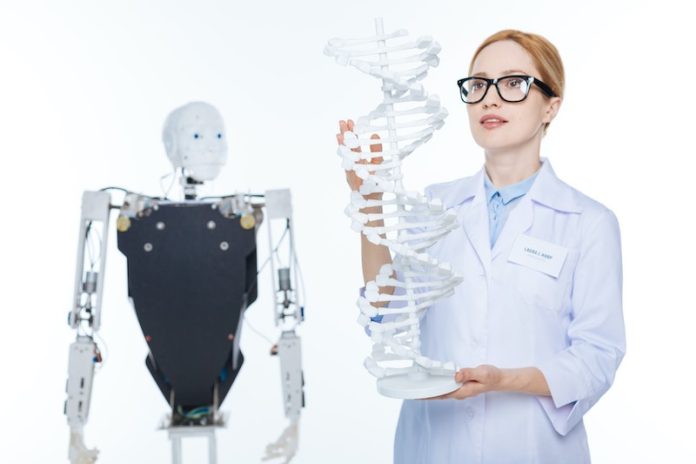
Pancreatic cancer is on a troubling trajectory to become the second leading cause of cancer-related deaths in the United States by 2030.
This aggressive disease often goes undetected until it’s too late, with a staggering 70% of patients facing dire outcomes within a year of diagnosis.
To make matters worse, nearly 40% of small pancreatic cancers evade detection on standard CT scans until they reach an incurable stage, creating a critical obstacle to early diagnosis efforts.
Detecting pancreatic cancer at an earlier, more treatable stage is the ultimate goal in the fight against this devastating disease.
In a recent groundbreaking development, researchers from the Mayo Clinic Comprehensive Cancer Center have harnessed the power of artificial intelligence (AI) to tackle this challenge head-on.
They’ve leveraged the world’s most extensive imaging dataset to create a versatile AI model capable of autonomously detecting pancreatic cancer on routine CT scans, at a stage where surgical intervention can still offer hope for a cure.
A New Beacon of Hope
“This study emerges as a beacon of hope,” says Dr. Ajit H. Goenka, a radiologist at Mayo Clinic and the principal investigator of the study.
“It addresses the last-mile challenge—detecting the cancer at a stage when even experts might miss it.”
The research team developed an exceptionally accurate AI model, trained on a vast dataset of over 3,000 patients, which can automatically detect pancreatic cancer, including small and hard-to-spot tumors.
Their findings, published in Gastroenterology, not only build on their previous work on early detection models but also reaffirm Mayo Clinic’s reputation as a pioneer in AI healthcare solutions.
The Promise of Early Detection
Most importantly, this AI model can identify minuscule cancerous growths in the pancreas that are imperceptible to the human eye on CT scans taken months before an official diagnosis—on average, a remarkable 438 days earlier.
This capability suggests that AI has the potential to uncover hidden cancers in asymptomatic individuals, enabling surgical treatment at a stage where a cure remains attainable.
Moreover, the AI model’s reliability and accuracy remain consistent across diverse patient groups and variations in scanning equipment and techniques.
This resilience is pivotal for its real-world applicability in a wide range of medical scenarios.
Transparency and Trust
Recognizing the importance of trust and transparency in AI’s acceptance within the healthcare landscape, the research team meticulously dissected the AI’s decision-making process.
This ensures that the AI’s operations are clear and comprehensible, vital for its broader clinical adoption.
Looking Ahead
Dr. Goenka expressed gratitude to the team behind the Framework for AI Software Technology (FAST), led by Dr. Panagiotis Korfiatis. Their dedication and expertise were instrumental in this achievement.
He emphasized that they are only at the beginning of their journey to address the challenges of early cancer detection, combining AI and advanced molecular imaging with complementary biomarkers.
Mayo Clinic has already initiated steps for clinical validation, and the AI models are undergoing regulatory processes.
With support from the Mayo Clinic Comprehensive Cancer Center, the team is preparing for benefactor-funded prospective screening trials.
The insights gained from these trials will further refine and strengthen the practical effectiveness of their innovative approach.
In conclusion, this remarkable advancement in AI-driven early detection of pancreatic cancer offers newfound hope for individuals at risk of this devastating disease.
It underscores the potential of AI to revolutionize healthcare, saving lives by catching cancer when it’s most treatable.
If you care about cancer, please read studies about a new method to treat cancer effectively, and this low-dose, four-drug combo may block cancer spread.
For more information about cancer prevention, please see recent studies about nutrient in fish that can be a poison for cancer, and results showing this daily vitamin is critical to cancer prevention.
The research findings can be found in Gastroenterology.
Follow us on Twitter for more articles about this topic.
Copyright © 2023 Knowridge Science Report. All rights reserved.



